I hope you're doing well. I was going through the book, "Compiler Design In C", by Allen I. Holub, when I came across these header files implemented in a sample program:
#include <tools/debug.h>
#include <tools.h> /* Needed only for prototype
My compiler says that no such file or directory exists ( Dev-C++ ). I have set the compiler settings to ANSI-C, seeing as to how the author uses ANSI-C to write code, but to no avail.
The program also includes a PRIVATE keyword, which after changing from C99 to ANSI-C, is still reported by the compiler to be an unknown keyword.
Can anyone help me out with this? Apologies if this has been asked before, but I could not find a reference to this anywhere. I have also included pictures of the code down here.
If I should abstain, or I'm unable to access these files, what other options do I have? I really want to complete this project.
Thank you in advance for your time and patience in reading all this through.

